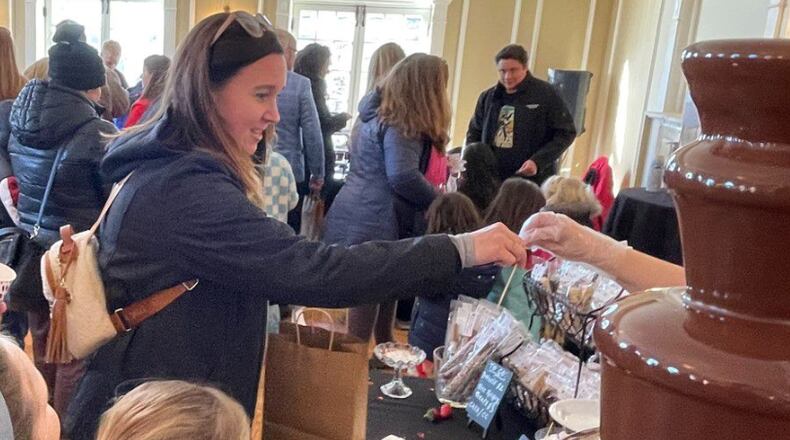“Intuitively our team knew that the impact was large,” said Brandon Rudd, director of the Cincinnati Regional Chamber’s Center for Research & Data. “But after doing this study, we now know for sure that ArtsWave and a vibrant arts sector are vital to the Cincinnati region’s economy.”
The annual average over the years was nearly $396 million, with the economic impact peaking in 2022 at more than $488 million — a nearly $150 million increase from 2021, according to the study.
Economic impact is the total increase in business sales revenue through direct expenditures of arts and culture organizations and new, ancillary sales created by that spending.
“You don’t need to hear Mozart at Music Hall, visit Black and Brown Faces at the Arts Museum or stand on a street corner in October and marvel at a Blink installation to know that the arts matter,” CRC President & CEO Brandon Cull said. “Today’s number helps you understand just how much they matter.”
Cincinnati debuted on the Arts Vibrancy Index — a report that recognizes and celebrates the most arts-vibrant communities in the country — in 2020 as No. 20 among large communities with populations greater than 1 million. The report states in 2023 the Queen City moved up to No. 11, between New Orleans and Cleveland, ranking highly in program revenue, total expenses and total compensation.
Among other analyses, the study looked at the economic impact of the 10 largest organizations led by or predominantly for Black, Brown, Indigenous and People of Color (BIPOC). While the total economic impact of these organizations was about $15 million in 2022, the underlying context is one of outsized growth.
Over the four years included in the study, these BIPOC organizations’ total impact grew by 26%, compared to 19% for all arts organizations, and the number of jobs created or supported grew by approximately 53% during that same period – much higher than the 7.4% growth for all arts organizations.
The impacts of the arts go beyond annual operating expenses, data shows. The $751 million in capital investments since 2015 have generated an additional $842 million in indirect economic impact. Also at the same time, approximately 8% of earnings in the construction industry in the Cincinnati region can be attributed to capital investments made by arts organizations.
“It’s not an arts scene, it’s an arts economy and if we nurture it, grow it and fund it, we will all benefit,” Cull said.
The study also shows the independent and sizable impact BLINK had on the region’s economy in 2022.
The art festival’s 2022 edition generated more than $249 million and supported 1,687 jobs with earnings amounting to $87.6 million. When you add BLINK to the year’s overall arts and culture impact, the total contribution grows to $737.7 million.
“The success of BLINK demonstrates how powerful it can be for a region to have a unique, single signature cultural asset,” said Donna Collins, executive director of the Ohio Arts Council. “That does not take away from everyone else. It just adds an opportunity to come to BLINK and go to the theater and go to a concert and go to the museum and the gallery.”
The Cincinnati Regional Chamber expects the growth will continue. The study projects total economic impact will build through 2027, reaching a total economic impact of $2.8 billion.
“We continue to out-punch our weight class,” said Leigh Fox, ArtsWave board chair. “The arts is becoming synonymous with the Cincinnati region and it’s what makes us cool and we have to remain cool as we grow.”
The public is invited to contribute to the 2024 ArtsWave Community Campaign, which kicks off on Feb. 6. This year, citizen-funded grants will be invested in more than 150 organizations and artists that drive economic vibrancy and social connectivity.
About the Author
